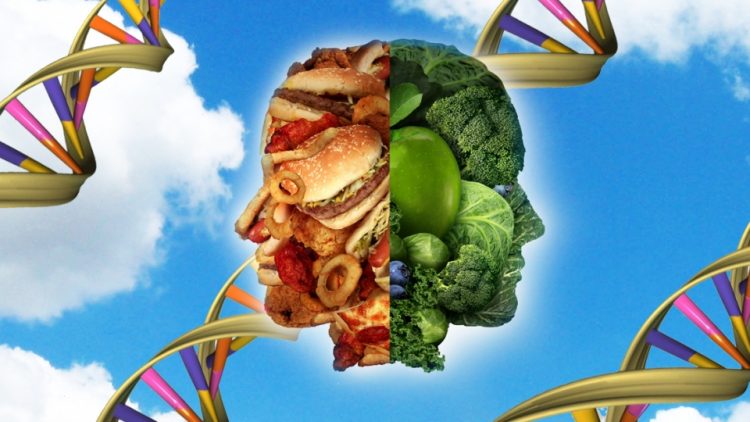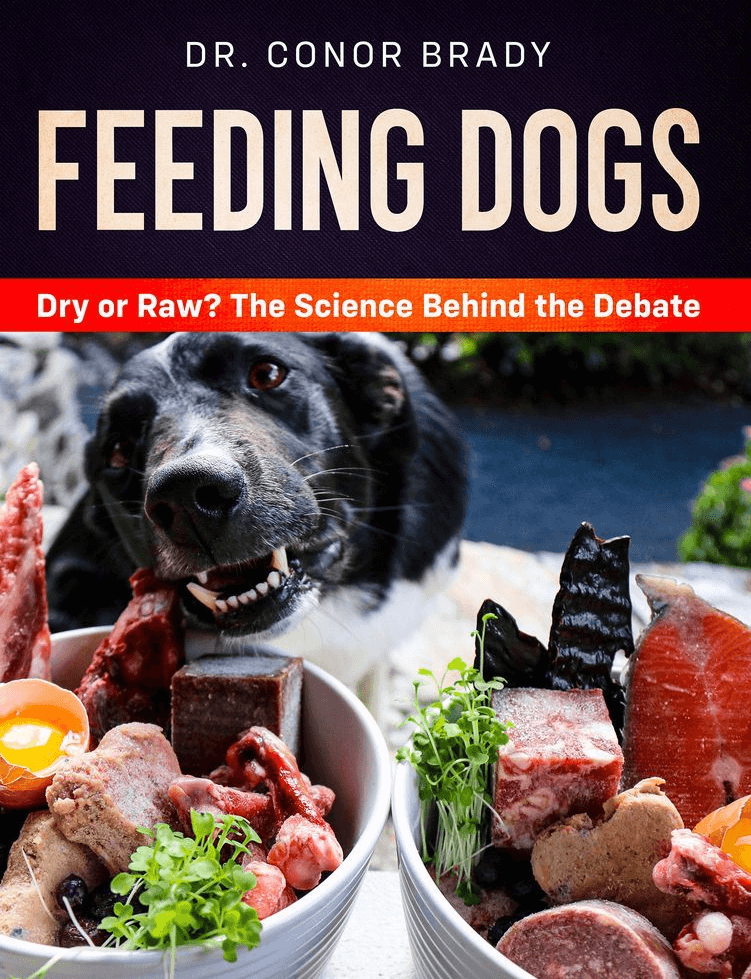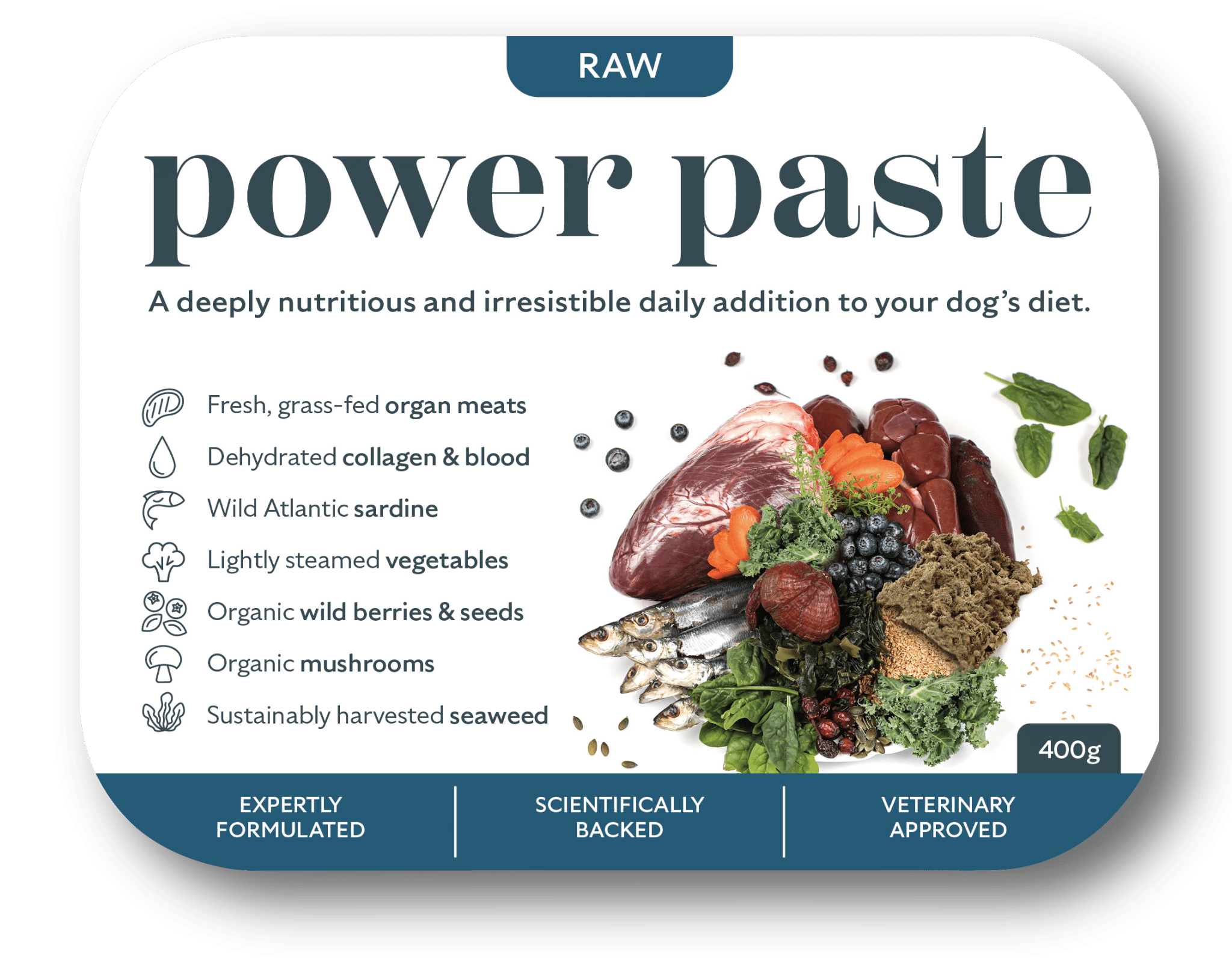Epigenetics is a Relatively new Realm of Science but the Immediate and Long-Lasting Implications for us and our Pets is Astounding. Part 1 of 2.
What is Epigenetics?
Epigenetics is defined as the study of heritable phenotype changes that do not involve alterations in the DNA sequence, meaning changes in appearance or biological set up that can be passed from one generation to the next that is not at the DNA level. The Greek prefix epi means “over, outside of, around” and in epigenetics implies features that are “on top of” or “in addition to” the traditional genetic basis for inheritance.
How I understand it is that it is more about gene regulation than gene creation, destruction or mutation. Think of it more like a light switch. It is not that [insert environmental factor] alters your DNA, but switches genes you already have on and off, and crucially, somehow, this effect on your genes can be passed on in the switched on or off mode, to your kids.
An Example of Epigenetics at Work
Roundup was an amazingly successful chemical for Monsanto. Patented in 1996, it is one of if not the most heavily used chemical in agriculture and lawn-therapy around the world (e.g. the US alone uses 50mil kilo’s of it per year), largely as wheat and corn today have become so genetically modified that they cannot grow without it. It allows them to stand longer, unmolested in the field, allowing longer growth periods and more yield as a result. Only last year, Bayer purchased Monsanto for an eye-watering $63bil. Unfortunately for Bayer, it was only a matter of months after that the courts awarded Dewayne Johnson €254mil for his throat cancer and a recent second case (of some 11,200 currently waiting in court, reported by Reuters) has seen Bayers share price tumbling.
I haven’t read the ins and outs of the injuries related, but in very short, Roundup is designed to kill, albeit plants, using the following methods, all of which sounds worrying if there was the slightest species-crossover:
- Block specific enzyme pathways involved in the manufacture of certain proteins needed for growth.
- Bonds to minerals such as zinc, magnesium, cobalt, copper and calcium, starving the plants of vital nutrients.
- Block major detox pathways in the liver
- Kill “good” bacteria and allow bad bacteria to survive
Whatever happened poor Dewayne Johnson and the thousands of agricultural workers and every-day gardeners (and pets?) sure to follow, it seems that the hippies were, once again, on the button. This is chemical is nasty, nasty stuff. A recent study demonstrated just how bad. It investigated how just tiny hits of glycophosphate (the main ingredient in the world’s most popular weed killer, RoundUp), equivalent to the amount humans take in on a daily basis, had a resoundingly negative effect on the health of rats, resulting in prostate, kidney and ovarian diseases, obesity and birth abnormalities, but vitally, the issues only really kicked in in the second and third generations.
This is worrying for both us but even more so for dogs. Studies show that dogs are eating plenty of glycophosphate. In fact, Zhao et al. (2018) tested 18 companion animal feeds for the chemical’s presence and concluded:
Companion animal feeds contained 7.83 × 101–2.14 × 103 μg kg−1 glyphosate which is likely to result in pet exposure that is 4–12 times higher than that of humans on a per Kg basis.
Yum! Cereal-based dry food strikes out again yet again.
When we consider the constant rise of cancer, as we all as chronic and autoimmune diseases in the human and pet populations allike, and considering the many thousands of chemicals that have been introduced to the food chain, we will undoubtedly be seeing more and more of this type of thing goes on. Surely next in line to demonstrate deleterious epigenetic effects will be the artificial sweetener aspartame which has today a highly questionable safety reputation and having been sneaked into the food chain in the most nefarious of circumstances.
The truth is, how much X affects Y and to what degree is very, very difficult / laborious to tease out. It is usually done retrospectively, by looking back at a large population and seeing what effect it had. All we have in the short term is highly questionable safety trials spewing from companies whose sole aim is to make money (award-winning Ben Goldacre, MD, does a great if terrifying job in Bad Pharma, explaining how the get these trials over the line, a highly recommended read) and now we have to think about a generational effect?!
Regardless, the effects of these chemicals is epigenetics in it’s purest form – stuff altering your genes and affecting your physical fitness down the line – a process that has been going on for millennia in nature. In fact, it is likely central to the whole evolution / survival-of-the-fittest thing. Your genes adapt in response to environmental factors, in the hope your kin get some tiny advantage over their rival, snowballing as time goes on.
The Role of Nutrition in Epigenetics…

Nutritional epigenetics is the study of the effects of nutrition on gene expression. It is the outside environment, in this case, the kind and quantity of food eaten by an animal, changing their inside constitution at the molecular level. It is the investigation of how food can condition the environment, influencing the activity of the genome and ultimately the physiology of the body, changes that can be passed down to the next generation. In essence, you are what your grandfather ate (a phrase coined by Kaati et al. 2002 during their investigation of cardiovascular and diabetes mortality as determined by the nutrition of parents and grandparents).
The most comprehensive article written yet on Epigenetics is probably by Landecker 2011, and I borrow from it a few quotes for this piece:
Epigenetics is not avoiding foods that clog arteries or decay teeth. It is not about food that accumulates as fat or is burned away as energy. It is about food that affects the very systems that metabolize food; for example, the presence or absence of nutrients may cause the body to be built with different numbers of cells in its digestive organs, or to have more or less receptors for metabolic hormones.
Nowhere is the epigenetic effect of nutrition on cells more dramatically evident than stem cells. Stem cells come to be understood in relation to the micro-niches they occupy in the body. In the lab, the environment you put the stem cell in, what you feed them, dictates whether those stem cells become a piece of heart muscle or an ear or a fingernail. It is not altering their genes, just switching some gene expression on or off.
But all cells can be influenced by nutrition as most are bathed in the things we eat. We are now beginning to understand that the food you eat is one of the most influential environmental factors your body is exposed to. And now we are not even talking about your body, but perhaps the one you create down the line. In keeping with the “you are what your grandfather ate”, epigenetics has been extensively studied in famine populations or, more accurately, the children of famine survivors, where chronic malnutrition has marked deleterious effects on the health of children borne to such individuals. In this way, epigenetics is now reshaping the way we deal with genetic/racial predispositions to disease. This is taken from Benyshek (2007).
What may look like genetic ‘racial’ differences between groups of people in something like diabetes incidence is recast as the physiological sign of a population that has recently undergone ‘severe cultural and economic disruptions and nutritional stress’ (forced relocation, indentured labor, poverty), followed by rapid transitions to Western diets and sedentary lifestyles, political violence that shapes present and future metabolisms
Is it just me or is this utterly fascinating? The immensity of it. The implications that what we do now to ourselves, let alone the planets will shape the health and well being of our kids is kind of flooring me, possibly have I have a little mini-me running around my feet each day. I’m looking back over my teens, early 20’s and 30’s if I’m honest, looking at my consumption, my fitness and thinking – whatever about the damage I have done to myself, what will the effect be on my next in line?
My head is spiralling. In the face of what is clearly an epidemic of chronic health conditions in our pets, there is surely nobody in epigenetic circles that will support a life of dry, ultra-processed, nutritionally defunct, chemical-laden foodstuffs for our pets? Worse than family pets, how many of Ireland’s dogs are raised in neglect, social depravation and certainly borderline nutritional starvation (though perhaps not on the calorie level) in puppy farms? A lot. How many of these owners testify to ill health in their pets? A lot. And nutrition aside, what are the effects of all-too-regular and unnecessary chemical flea and worm control? What of annual boosting already vaccinated animals?
I am only half way through the Landecker thesis, trying to interpret each point and get it down on paper in a form both of us can understand but suffice to say I will be looking more into this next week, but with a more positive spin. Afterall, while all the usual bad stuff, from nasty food chemicals above to radiation (as in the case of Spiderman and the Hulk) to weird chemicals (as in the case of the Teenage Mutant Ninja Turtles, or Daredevil, I’m not a nerd), is known to affect us negatively, there is conversely great scope for exploring how we can switch on or off of genes to our benefit.
Thus, in part 2, I hope to focus on which foods we know do what, and seeing how we can apply this to our dogs and possibly ourselves to benefit our health and possibly those down the line.
In sum, the research is directed at the question of how things outside of the body are transformed into the biology of the body, in animals and humans…at stake are notions of personal and social responsibility for the future health of bodies and populations and the individual or governmental stewardship of the food environment…This may sound like biological fatalism in just another form, but the great hope of epigenetics is the essential plasticity of the body: if the body is open to environment, then it is open to environmental intervention…
Related Articles
Only if they have fleas should you treat them, and then do it naturally.
Worms in dogs: How to monitor, what to do
Stop boosting your already-vaccinated pets annually (for viruses)
I have spent a lot of time building up my knowledge. From a doctorate in animal behaviour and nutrition to years in guide dogs and the last seven year inside and out of the pet food industry, I have always provided all my information free to the public, articles that I spend a lot of time putting together. While it’s clearly a passion of mine the fact remains, I can’t do this and a steady job at the same time. So I try to monetise my existence as much as I can without pushing on you horrible adverts for car loans and crap pet products. One way I do this is by tracking some of the links to products I recommend. I also participate in the online & local scheme that allows me to rewarded for promoting some companies I likes, such as Paleo Ridge UK Raw Dog Food . Recently, I have put a donation button at the bottom of my longer, possibly more helpful articles. So, if you enjoyed the piece, or perhaps it helped your dog where repeated vet visits have failed, and you feel you’d like to give me the price of a cup of coffee (€3), please free to do exactly that. If you’re strapped and can’t afford it, I can totally sympathise, you’re free to read on, no questions asked. We’re glad to have you on board spreading the word regardless.
Many thanks and continued good health to you and your pets.












